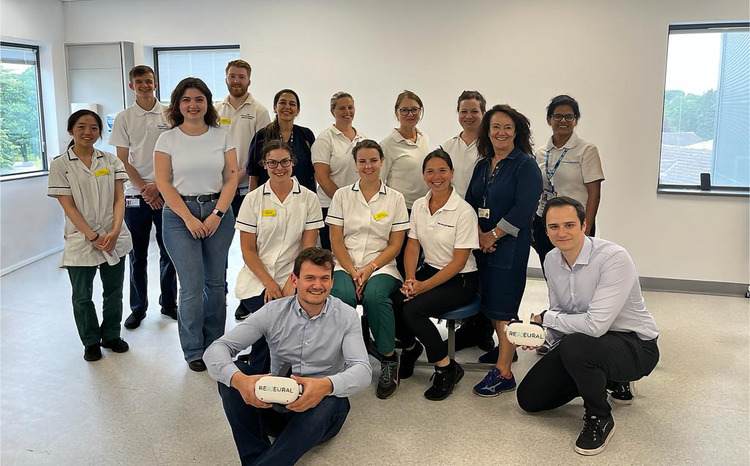Open source aims to reach milestone in Newcastle
- 26 November 2014

A crop of NHS open source initiatives will be showcased on Wednesday at a watershed event in Newcastle.
Developers, suppliers and NHS evangelists will show a range of proof of concepts and working software, some now in live use.
Organised by NHS England’s open source team, the Open Source Open Day marks a milestone in efforts to kick-start a series of open source initiatives and prove they have the potential to gain market share in an NHS used to proprietary software.
Getting from national to local
The success of open source replacements for key sections of NHS national infrastructure and services – the Spine and booking – has helped to build credibility for open source clinical software.
The replacement for NHSmail, software that will be used by almost everyone working in the NHS, may well be open source. But there is still a huge challenge to create vehicles to support the development of open source products, and to persaude trusts to accept them.
E-prescribing; the next big challenge
On show in Newcastle will be diverse clinical initiatives. These include: OpenEPR, OPENeP (electronic prescribing), Open-eObs, OpenPACS, OpenEyes, OpenMinds and OpenDental.
The leaders of the open source movement say OpenEPR is now a pretty mature suite of systems, while OpenEyes has been implemented beyond its original home at Moorfields Eye Hospital in London. Some of the other projects are described as “concepts, but motoring.”
Meanwhile, a lot of hopes are being invested in the potential of an open source e-prescribing system for the NHS. The logic runs that e-prescribing is something that everyone wants to do, but few have done; while there is only limited capacity in the current software market.
At an open e-prescribing project meet-up event in London last week, some of the potential pieces of a solution, based on open architecture and common standards, were put through their paces over beer and sandwiches.
The event, in a hip shared workspace, was pretty cool. So cool, in fact, that when members later retired to The Mad Hatter to plan their next steps for transforming the face of NHS software, they were rubbing shoulders with the Southbank Settlers of Catan tournament.
More significantly, the open e-prescribing project highlighted the international nature of the open source health movement, involving companies from Australia (Fivium); Slovenia (Marand); and Wandsworth (Neova Health); as a well as established suppliers such as IMS Maxims and FDB.
Some of these firms have a track record of delivering open source at scale. Moscow’s health system runs on Marand’s Think!EHR platform. Fivium wrote the software that runs the Australian prescription service and the UK’s Export Licensing System.
Working fast
One of the key selling points of open source is that proof of concepts can be done at speed. In addition, open standards and open application programming interfaces allow components to be very efficiently recycled.
Fivium last week demonstrated an impressively polished medicines administration application on tablets. Created as a disposable proof of concept, on the HANDI-HOPD open platform demonstrator, and using OpenEHR standards, the app had taken one developer just a few weeks to build.
Getting suppliers to the party
However, few established NHS software suppliers have yet joined the open source party. Back in 2013, NHS England looked seriously at running a project to anglicise the US Veterans Administration’s open source system, VistA, for the English health service.
In the event, it decided instead to support trusts interested in going down the open source route. In its ‘achieving an integrated digital care record’ guidance, it indicated that it would work with suppliers interested in open sourcing their products for the NHS.
At the time, it looked as if four products might be involved: IMS’ Maxims EPR, the PICS developed by University Hospitals Birmingham, VistA, and a web-based HP system in use in Spain.
One of the keenly anticipated announcements at tomorrow’s event will be the number of trusts that have committed to take openMAXIMS from IMS Maxims.
EHI understands that three NHS trusts will sign-up initially, starting with Taunton and Somerset NHS Foundation Trust, which announced the company as the preferred bidder for its EPR replacement in March.
However, it looks as if HP will be a noticeable absentee from tomorrow’s party. EHI understands that it has said it will only open source and Anglicise its Spanish product if it first gets three trusts commit to it.
One industry expert archly observed: “You are either open source or not – you can’t just say you’ll be a bit open source when it suits you.” But HP is not the only company keeping its options open; other suppliers also continue to watch developments with interest.
The challenges ahead
Another of the key announcements in Newcastle promises to the unveiling of plans to create a series of community interest companies to take forward open source projects.
EHI understands NHS England will invest in establishing these CICs as legal entities to be taken forward by groups of interested NHS trusts.
Plans for up to 13 CICs are being drawn up at the moment as part of efforts to ‘create a level playing field’ for open source. How many get their products adopted by trusts promises, again, to be an acid test.
Significant tech fund money – around £20m – is also being earmarked for open source projects. So the pressure will be on the small NHS England open source team and its partners to prove that working solutions can be delivered and built into the NHS IT landscape.
Much has been achieved in a small time. But the real challenge of winning significant NHS market share by offering compelling open products remains.




